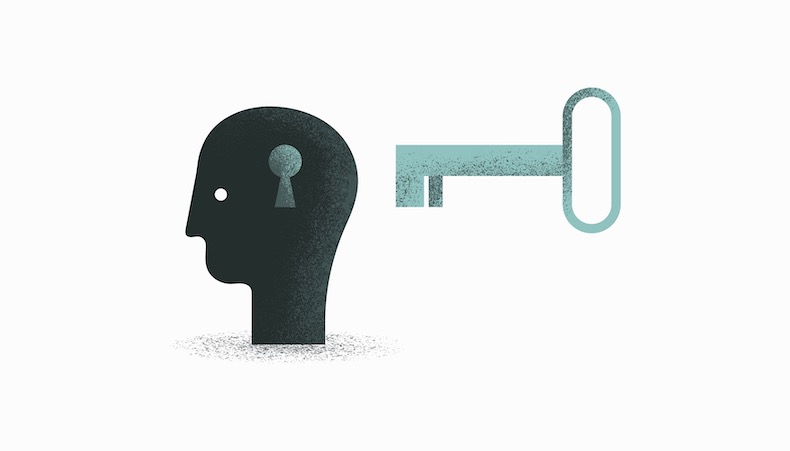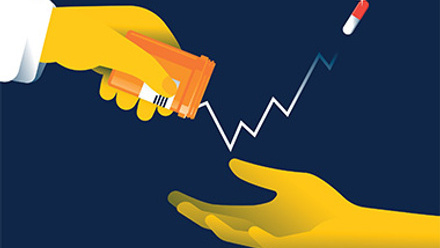Why employee benefits ARE wellbeing
It seems an almost odd situation we find ourselves in that wellbeing is somewhat tied to our jobs. In the US, more than 175 million people get health coverage through their workplace; how we go to this point is quite interesting. How health insurance at work in the US started is likely the same reason why wellbeing will become tied even closer to the workplace in the future – and the benefits you offer will play a large part of that.
As the US came out of the Great Depression, hiring ramped up. With so many workers still overseas, it became a very competitive job market, so wages began to climb and the fight for talent raged. Sounds familiar, doesn’t it?
While this all happened in the US in the 1940s, as I write this book today in the UK, there are two jobs available for every job seeker, so employers are working harder than ever to attract the most talented people.
Back in the 1940s, to protect the economy, the National War Labor Board stopped employers from competitively raising wages by introducing a wage cap. But health insurance was exempt from this cap and the IRS decided that employer contributions to health insurance premiums were tax-free.
So to attract the best and brightest, employers began to offer health insurance on top of wages. In 1939 just 8 million Americans had health insurance, but by 1952, 92 million did. I think this was the start of a 70-year relationship our wellbeing has had with the workplace.
The pandemic is influencing us just the same as the Great Depression did; by forcing employers to offer better benefits to support the lives of their people and attract the best people.
Employee benefits are preventing people from falling ill
One longitudinal study into health insurance in the US found that the mortality rates of uninsured versus insured adults was higher. Health insurance can affect health status. In the UK, the IFS recommends that the UK Government does more to encourage people to take out private medical insurance. These recommendations come with good reason – health coverage at work appears to make people healthier.
A landmark study from 2011 involving researchers from MIT, Harvard and the State of Oregon studied the impact of randomly assigning Medicaid insurance to poor people in Oregon through a lottery. They found that Medicaid’s impact on overall health, happiness and general wellbeing was “enormous”. After just one year with the insurance in place, those random participants were happier, healthier and under less financial strain than those who weren’t included in the lottery.
There were big jumps in the numbers seeking out preventative care like mammograms and more regular doctor visits. People were more proactively looking after their health just because of insurance. Just having health insurance in place increased the chances of someone saying that they were in “good”, “very good” or “excellent” health.
Benefits have become a form of life support for employees and employers
Throughout the pandemic, health-related benefits became more important than I think they have in the 20-plus years I have been working in the industry. The pandemic forced many employers to enrich their employee benefit schemes with health and wellbeing at their core.
When asked how important health benefits have become now, compared with five years ago, every single benefit was ranked as “more important”. Almost half of employers now say benefits like critical illness, long term disability, hospital indemnity and dental insurance are more important than they were before the pandemic.
The impact is so strong, that employers are even reporting that the cost of offering these benefits is now less important than it was in 2018 – by quite a large difference – around 14%.
These types of employer-sponsored health and wellbeing benefits do make a material difference to individual wellbeing according to new research. Digital health screening, virtual doctor appointments, self-help tools, health insurance etc, are all proving to move the dial on employee wellbeing. For example:
- Making dental insurance available to employees has been shown to positively impact oral health.
- Health screening benefits have been shown to reduce inpatient and outpatient health costs for two years after treatment.
- Employee assistance programmes (EAPs) result in a 50% drop in absence rates.
A 2021 report by the Social Market Foundation in the UK examined the role insurance products like income protection and private medical have on things like reducing workplace absences, facilitating a swift return to work and reducing presenteeism.
The report found that private medical insurance was described as “indispensable” or “helpful” by 82% of respondents who had a policy in place at the time of absence or illness. Two thirds said the same about their critical illness policy.
Though much maligned, health insurance continues to play a large part in wellbeing at work for American employees in particular. Picking up where the state is failing, employers are increasingly wanting to support their people in getting access to quick and high-quality care.
But even outside of the US, employers are also continuing to bow down to pressure from employees to offer health insurance. Health insurance in the UK now ranks as one of the most desired workplace employee benefits, second only to higher pay.
For British employees, I can only see the demand for private health insurance grow as the NHS continues to struggle to look after the health of the nation and, as employers who can, try to find ways to unburden the NHS.
Employee benefits are wellbeing. Their impact on the health and happiness of people can no longer be denied. Benefits aren’t just about rewarding people, they’re saving lives.
Supplied by REBA Associate Member, Benifex
The home of award-winning employee benefits, reward, recognition, & communications.








